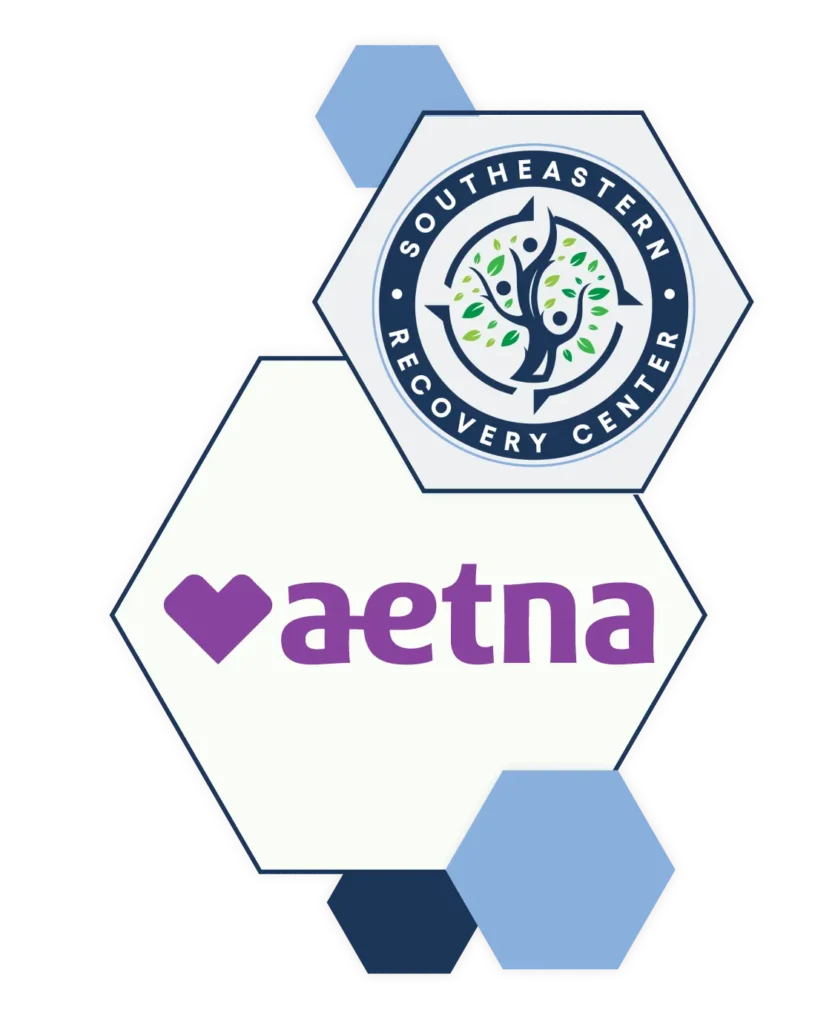Find out if addiction treatment in North Carolina is covered by your Aetna Health Insurance Policy – or verify your insurance coverage with Southeastern Recovery Center now.

One of the biggest obstacles that people face when seeking addiction treatment is the cost. For many North Carolina residents, trying to figure out the financial aspect of mental health and addiction treatment is the biggest deterrent to actually getting treatment. According to the National Alliance on Mental Illness, of 452,000 adults in North Carolina who did not seek treatment for their mental health, 44.8% did not due to financial constraints.
As a part of the Affordable Care Act (ACA), also known as Obamacare, provisions were included that aimed to improve access to mental health services and insurance coverage for mental heath conditions. Addiction, categorized under the broader term “substance use disorder” (SUD) in diagnostic manuals such as the Diagnostic and Statistical Manual of Mental Disorders (DSM-5) published by the American Psychiatric Association, or the International Classification of Diseases (ICD-10) published by the World Health Organization.
Aetna is one of the oldest and largest health insurance companies in the United States, with a history dating back to the 19th century. Here’s a brief timeline of its history:
Aetna was founded in 1853 as the Aetna Life Insurance Company in Hartford, Connecticut. It started as a fire insurance company, providing coverage for property damage caused by fires.
Over time, Aetna expanded its offerings beyond fire insurance to include other types of insurance, including health insurance. It became one of the leading health insurance providers in the United States.
Throughout the 20th century, Aetna experienced significant growth through mergers and acquisitions. It acquired various companies in the insurance and financial services sectors, expanding its reach and diversifying its offerings.
In addition to health insurance, Aetna began offering a wide range of healthcare-related services, including dental insurance, pharmacy benefits management, group life insurance, disability insurance, and more.
In the 1980s and 1990s, Aetna underwent a transformation into a managed care company. It established health maintenance organizations (HMOs) and preferred provider organizations (PPOs) to manage healthcare costs and improve the quality of care.
In the late 20th and early 21st centuries, Aetna expanded its operations into international markets, offering health insurance and other services in various countries around the world.
Like many health insurance companies, Aetna faced challenges related to rising healthcare costs, regulatory changes, and market competition. It underwent various restructuring efforts to adapt to changing market dynamics and remain competitive.
In 2018, Aetna was acquired by CVS Health, a leading pharmacy and healthcare company, in a deal valued at approximately $69 billion. The acquisition aimed to create a vertically integrated healthcare company that could better coordinate and deliver healthcare services to consumers.
Aetna offers a variety of health insurance plans to meet the diverse needs of individuals, families, employers, and other groups. The specific plans available may vary depending on factors such as location and eligibility. Here are some common types of Aetna plans:
These are just a few examples of the types of Aetna plans available. It’s important for individuals to carefully review plan options and consider their healthcare needs and budget when selecting a health insurance plan.
Sometimes looking at your Aetna insurance policy can look like it is written in a foreign language – especially if you are already overwhelmed by the process of looking for addiction treatment in North Carolina. There are some key terms you need to be aware of when determining what is covered by your policy – something that your addiction treatment facility will be able to help you with if you are unsure.

Copayment (Copay): A fixed amount that you pay for covered healthcare services at the time of service. Copayments are typically defined for specific services or prescription drugs, and the amount can vary depending on the type of service and the terms of your plan.
Deductible: The amount you must pay out of pocket for covered healthcare services before your insurance plan starts to pay. Deductibles can vary depending on your plan, and some services may be covered before you meet your deductible, such as preventive care.
Coinsurance: The percentage of costs you pay for covered healthcare services after you’ve met your deductible. Coinsurance typically applies after you’ve reached your deductible and is a shared cost between you and your insurance plan.
Out-of-Pocket Maximum (OOP Max): The most you have to pay for covered services in a plan year. Once you reach your out-of-pocket maximum, your insurance plan pays 100% of the allowed amount for covered services for the rest of the plan year.
Network: A group of doctors, hospitals, and other healthcare providers that have contracted with your insurance company to provide services at a discounted rate. There are two main types of networks:
In-Network: Providers who have agreed to accept negotiated rates with your insurance company. Using in-network providers typically results in lower out-of-pocket costs.
Out-of-Network: Providers who have not agreed to the negotiated rates with your insurance company. Using out-of-network providers may result in higher out-of-pocket costs, or the services may not be covered at all.
Prior Authorization: Some services or treatments require prior authorization from your insurance company before they will be covered. This means your doctor must get approval from your insurance plan before providing the service or treatment.
Formulary: A list of prescription drugs covered by your insurance plan. Formularies typically categorize drugs into tiers, with different cost-sharing amounts for each tier.
Preventive Care: Healthcare services that focus on preventing illness or detecting health problems early when they are easier to treat. Preventive care is often covered at no cost to you under most insurance plans, including Aetna plans.

As one of the oldest insurance companies in the country, Aetna services millions of patients each year – but it doesn’t mean that terminology and verifying benefits has gotten any easier. When you are looking for addiction treatment, the biggest worry you may have is how the financial part of it works, but don’t worry, Southeastern Recovery Center is here to help.
Our staff is trained in handling your Aetna insurance coverage questions and we even offer online verification of benefits. We try to make the process as easy and as transparent as possible – that way you aren’t held back by the cost of addiction treatment in North Carolina.
If you are ready to get started, give Southeastern Recovery Center a call to get started verifying your Aetna insurance coverage for addiction and mental health treatment.
